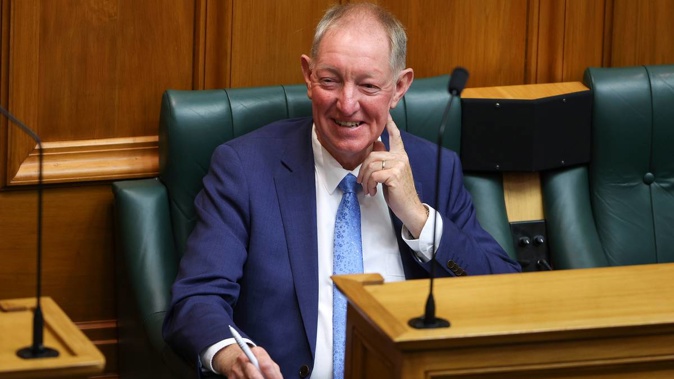
Outgoing MP Nick Smith is entitled to a superannuation allowance of about $87,000 a year along with international travel perks after he leaves Parliament next week.
Smith announced his shock resignation this week, stating he would leave Parliament on June 10 after being told a Parliamentary Service investigation into "a verbal altercation in my Wellington office last July that has not concluded" had been leaked to media.
Smith has apologised for the outburst. No details of the investigation have been reported since Smith's statement.
Smith said he had decided to retire after losing the Nelson electorate in 2020, but that inquiry had prompted him to leave now.
After he resigns the veteran MP, who first entered Parliament in October 1990 and is the longest consecutively serving MP, will be entitled to a range of perks for the rest of his life.
Only Speaker Trevor Mallard has been in Parliament longer, entering in 1986, however his service was interrupted between 1990 and 1993.
Having entered Parliament prior to 1992, and serving uninterrupted, Smith is entitled to what has been dubbed a "gold-plated" superannuation scheme.
The current rate means he would receive about $87,000 annually for the rest of his life, just over half the currentbase backbencher salary of $163,961.
Smith could also choose a lump sum - or part of a lump sum - by opting to receive no allowance or a lower allowance.
The scheme closed to newcomers in 1992, but those MPs already in it were able to stay in and their entitlements are not affected.

Outgoing veteran National MP Nick Smith will be entitled to a superannuation payout of roughly $1 million or annual salary of about $87,000 when he leaves Parliament. (Photo / Mark Mitchell)
Over the past decade a dozen MPs have retired on the scheme, including National's Lockwood Smith, Bill English, Tony Ryall, Murray McCully, John Carter and Maurice Williamson; Labour MPs Lianne Dalziel, George Hawkins, Ross Robertson and Pete Hodgson; Progressives leader Jim Anderton; and United Future leader Peter Dunne.
Smith is the last of the MPs entitled to the scheme.
The pension comes after MPs who served from prior to 1992 put in 11 per cent of a backbench MP's salary for their first 20 years, and 8 per cent after that.
The annual allowance after retirement is calculated by a formula, depending how long the MP was in Parliament.
Those in Parliament for 20 years got an allowance worth about two-thirds of an MP's annual salary on the day they began to receive the annuity. Years served after 20 years saw the rate lower.
The allowance is pegged to the Consumer Price Index, so it increases every year.
The value of the taxpayer contribution under the scheme has been valued at 23 per cent of an MP's gross annual salary.
On top of this allowance, Smith would also be entitled to free international travel for himself and his spouse for the rest of their lives.
The travel perk only applies to MPs who served three terms before 1999, and is capped at the cheapest Air New Zealand business class flight to London each year and 12 domestic return flights.
Former MPs and their partners spend about $1 million a year through this entitlement - though the MPs received less pay when working at Parliament because of it.
Meanwhile, post-1992 MPs are also entitled to a superannuation scheme but at a slightly lower rate, putting in up to 8 per cent of a backbencher's salary. Until 2003 the taxpayer put in $2 for every $1 from the MP.
In October 2003, the taxpayer contribution rose to $2.50 for every $1.
MPs choose their own super fund scheme and are susceptible to investment woes. The maximum value of the top-up is 20 per cent of the MP's salary.
Smith has not responded to a request for comment.
His resignation brings an end to a 30-year parliamentary career - a stint in which he was a Cabinet minister under Jim Bolger, Dame Jenny Shipley and Sir John Key, including Education Minister, Building and Construction Minister and Conservation Minister.
Take your Radio, Podcasts and Music with you









